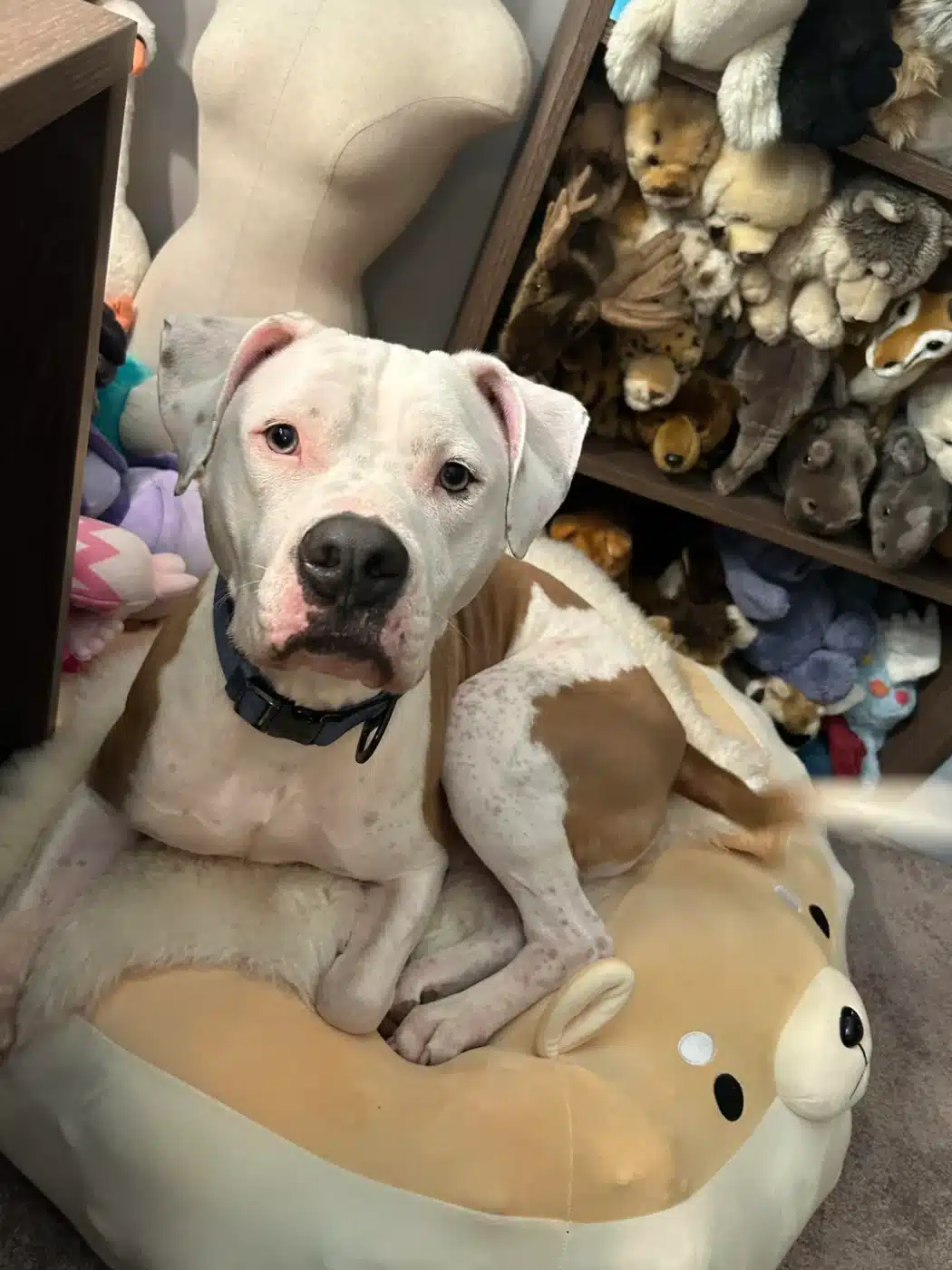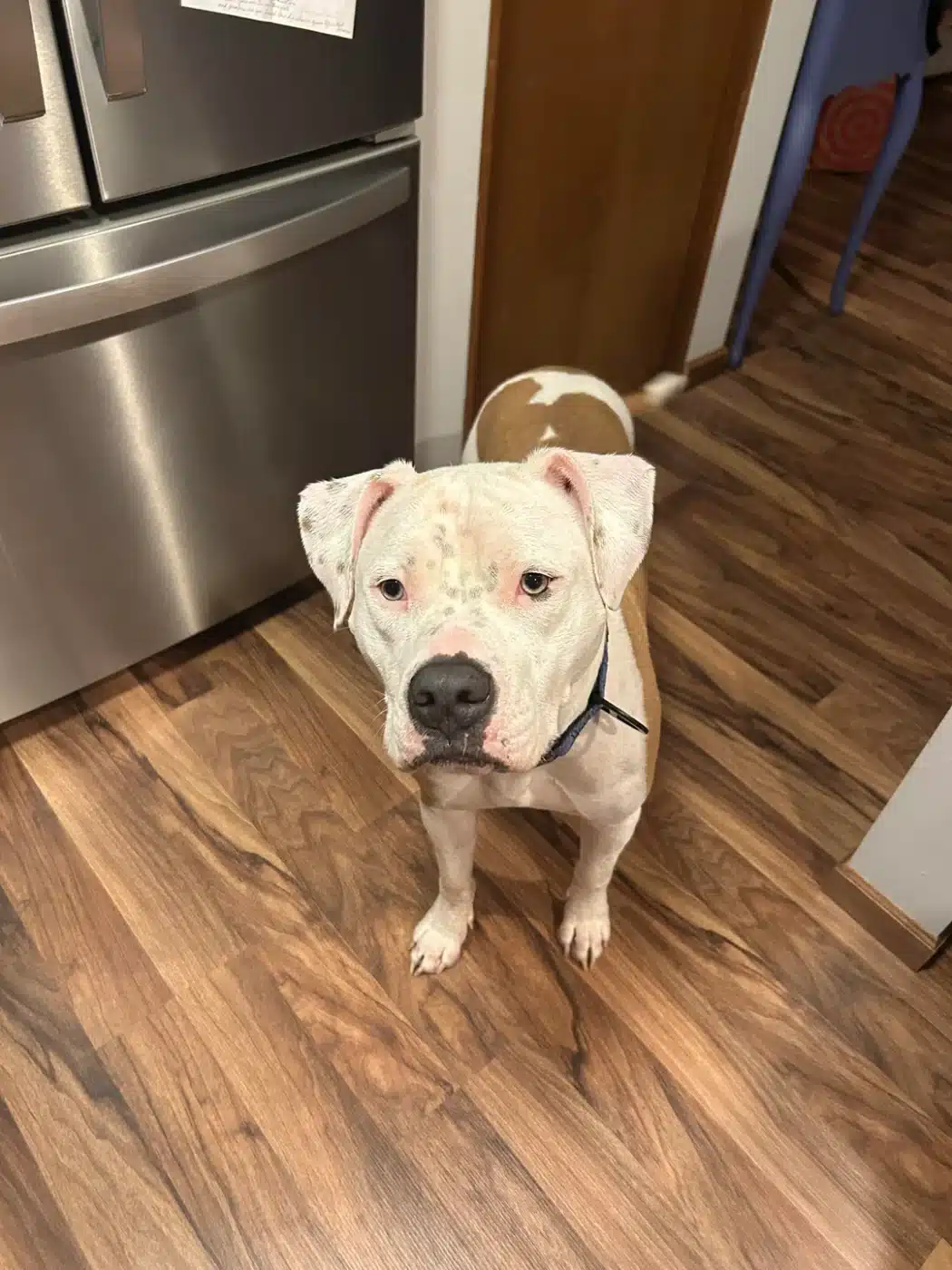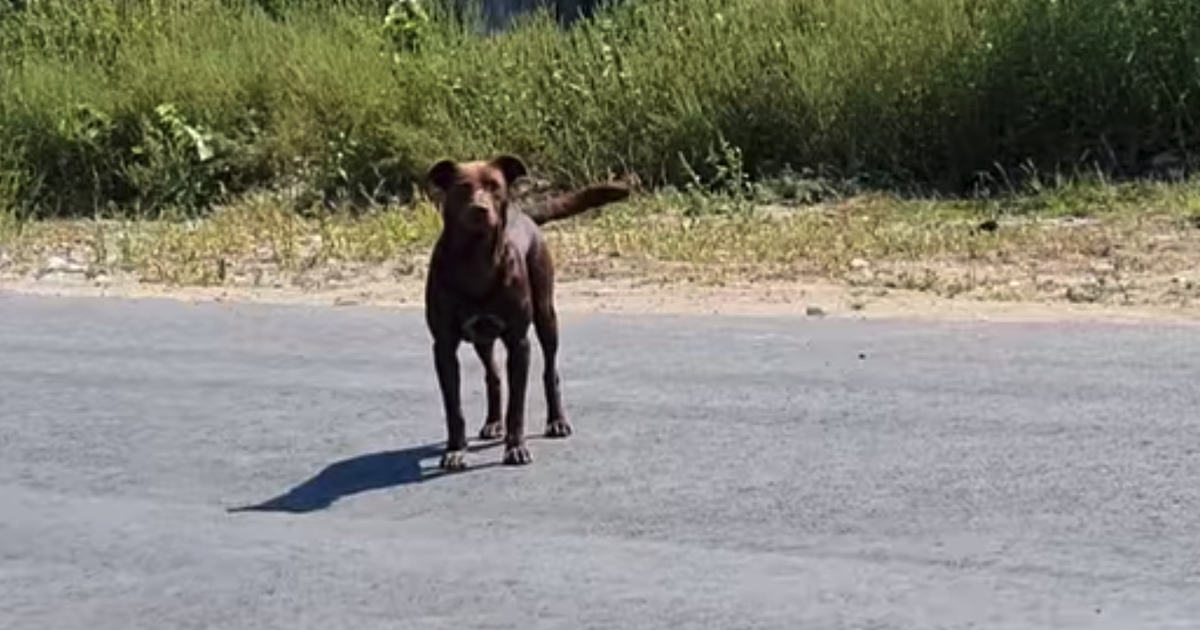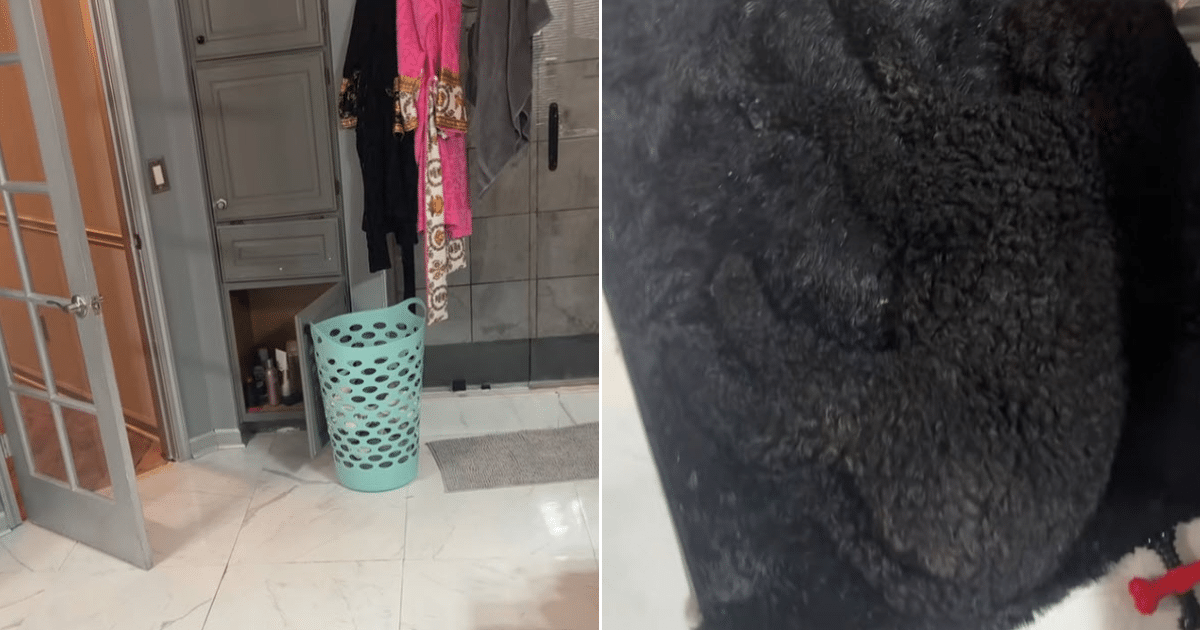Family Learns Their Rescue Dog Jake Is 100% Pit Bull After DNA Test
When Maggie Wright and her family welcomed Jake into their lives this past January, they thought they had a pretty good idea of who he was. Adopted from the Burnett Humane Society in Wisconsin, the three-year-old rescue had the look of a bull terrier mix—at least, that’s what the family assumed. With his broad head, playful eyes, and high energy, Jake seemed like a lovable mutt with an uncertain but promising background.
 Source: Reddit
Source: RedditThe adoption held extra meaning for Wright’s brother, Rene, who had been drawn to Jake from the moment he first spotted him at the shelter. The family agreed he was the perfect fit, and before long Jake was running around their home, showering everyone with affection and enthusiasm. Curious about his true lineage, they decided to order a DNA test through Embark, one of the leading companies in canine genetic testing.
What came back left them both surprised and amused: Jake wasn’t a mix at all. He was 100 percent American Pit Bull Terrier. “We DNA tested him to see if we could get more information on him,” Wright explained. “We were able to find relatives and see some of his history, which is more than we had.” The unexpected results sparked laughter in the household, as the family had been convinced they would discover at least a few different breeds.
 Source: Reddit
Source: RedditWright decided to share the findings on Reddit’s r/DoggyDNA forum with the tongue-in-cheek caption, “Whelp, we were wrong.” The post quickly gained traction, with hundreds of users chiming in. Many weren’t shocked, pointing out that Jake looked exactly like a pit bull. One commenter joked that he was “pit, pit, and pit,” while another said, “That’s the most American bulldog looking pit I have ever seen.” Still, others focused on his charm, writing comments like, “Jake is 100% adorable,” and comparing him to Chance, the beloved pit bull character from the 1993 movie Homeward Bound.
Beyond the fun reactions, the family’s experience shines a light on the growing popularity of pet DNA testing. Once considered a novelty, the market is expanding rapidly, projected to more than double from $419 million in 2025 to over $916 million by 2035. In addition to breed identification, these tests can provide valuable health insights, flag potential drug sensitivities, and even connect pet owners with their dog’s genetic relatives.
 Source: Reddit
Source: RedditFor the Wrights, though, the results are less about science and more about connection. The DNA test gave them a clearer picture of Jake’s background, but it didn’t change what mattered most. “Now we know who he is,” Wright said. “But to us, Jake has always just been Jake.”
 Source: Reddit
Source: RedditIn the end, the revelation was just another chapter in Jake’s story—one that underscores the joy of adoption, the surprises pets bring into our lives, and the unconditional love that defines the bond between dogs and their families.

 1 day ago
4
1 day ago
4



![Blue Buffalo vs. Iams Who Wins? [2025]](https://iheartdogs.com/wp-content/uploads/2023/09/animal-company-3047244_1280-2.jpg)














 English (US) ·
English (US) ·